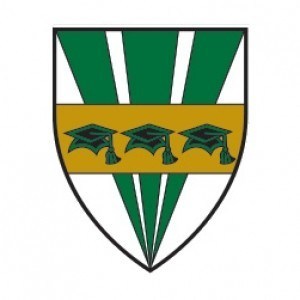Program Description:
The Child and Youth Care Counsellor diploma program at Douglas College is designed to prepare students for rewarding careers in supporting and advocating for children, youth, and families facing diverse challenges. This comprehensive diploma program combines theoretical knowledge with practical skills, enabling graduates to work effectively in a variety of settings such as schools, community agencies, residential facilities, and healthcare environments.
Throughout the program, students engage in a balanced curriculum that covers key areas including child development, behavioural management, mental health issues, trauma-informed care, and culturally responsive practices. Emphasis is placed on developing strong communication, problem-solving, and assessment skills to create safe and supportive environments for vulnerable populations. Students also learn about legal and ethical considerations relevant to child and youth care work, ensuring their practice aligns with professional standards and promotes the best interests of their clients.
The program incorporates a significant practicum component, offering hands-on experience in real-world settings under the supervision of experienced professionals. This practical training allows students to apply theoretical concepts, refine their interpersonal skills, and develop confidence in their ability to support children and youth facing complex needs. The curriculum is delivered by faculty members who are experts in child and youth care, mental health, and social work, ensuring that students receive high-quality education grounded in current best practices.
Upon successful completion of the program, graduates earn a Child and Youth Care Counsellor diploma, qualifying them for entry-level positions in community agencies, schools, residential treatment centers, and other organizations dedicated to child and youth welfare. Many graduates also choose to pursue further education in related fields such as social work or psychology to advance their career prospects. The program’s holistic approach emphasizes cultural competence, ethical practice, and a commitment to social justice, preparing students to make meaningful contributions to the well-being of children, youth, and their families in British Columbia and beyond.
The Child and Youth Care Counsellor program at Douglas College is designed to prepare students for a rewarding career in supporting children, youth, and their families. This comprehensive program combines theoretical knowledge with practical skills, enabling graduates to effectively work in a variety of settings, including schools, community agencies, residential facilities, and healthcare environments. Throughout the program, students explore a wide range of topics such as child development, family dynamics, mental health, trauma-informed care, crisis intervention, and ethical practices. Emphasis is placed on developing strong communication and observation skills, cultural competence, and a compassionate approach to working with diverse populations.
The curriculum incorporates hands-on learning through practicum placements, where students gain real-world experience under the supervision of experienced professionals. These placements are essential for applying classroom knowledge to practical situations, enhancing skills in assessment, planning, and intervention strategies. The program also focuses on fostering professional values, such as confidentiality, advocacy, and collaboration, preparing students to become effective team members and leaders in child and youth care. Graduates will be equipped to promote positive development and well-being among children and youth, offering support that is respectful, empowering, and trauma-informed.
In addition to core coursework, students benefit from guest lectures, workshops, and opportunities for community engagement. The program's interdisciplinary approach encourages understanding of social, emotional, and behavioral challenges faced by youth and develops strategies for effective intervention and prevention. Upon completion of the program, graduates are eligible for certification as Child and Youth Care Counsellors, opening doors to diverse employment opportunities within the provincial healthcare and social services systems. This program is ideal for compassionate individuals committed to making a meaningful difference in the lives of children and young people.
Program requirements for the Child and Youth Care Counsellor diploma at Douglas College include a combination of academic coursework, practical training, and specific admission criteria. Prospective students must have completed their high school education or equivalent, with a strong emphasis on courses in English, social sciences, and related fields to ensure foundational knowledge. Applicants are typically required to submit official transcripts demonstrating successful completion of these prerequisites, along with a completed application form, application fee, and any additional documentation specified by the admissions office.
The curriculum is designed to provide students with both theoretical knowledge and practical skills essential for working with children, youth, and their families in various settings such as schools, community agencies, and healthcare facilities. Core courses cover topics such as child development, intervention strategies, counseling techniques, Ethics in Child and Youth Care, and working with diverse populations. To graduate, students must complete all required coursework with a minimum GPA as specified by the program, which is usually a passing grade in all core and elective courses.
In addition to classroom learning, the program mandates clinical practicum placements, where students gain hands-on experience by working under supervision in real-world environments. These placements are arranged through partnerships with community organizations and health agencies, and students are required to complete a specified number of internship hours. During practicum periods, students must demonstrate professional conduct, adherence to ethical guidelines, and the application of their learned skills to support their clients effectively.
Furthermore, students must participate in ongoing assessments, including written assignments, presentations, and skills demonstrations. Completion of a final capstone project or portfolio may also be part of the graduation requirements, showcasing their comprehensive understanding and readiness to enter the workforce as Child and Youth Care Counsellors. The program may require students to undergo criminal record checks and health clearances to ensure suitability for direct client contact.
Overall, the program aims to prepare competent, ethical, and reflective practitioners equipped with the necessary skills to support and advocate for children and youth in diverse community settings. Exact entry requirements and specific course details should be verified through the Douglas College official program webpage or admissions office.
Want to improve your English level for admission?
Prepare for the program requirements with English Online by the British Council.
- ✔️ Flexible study schedule
- ✔️ Experienced teachers
- ✔️ Certificate upon completion
📘 Recommended for students with an IELTS level of 6.0 or below.
The Child and Youth Care Counsellor program at Douglas College offers a variety of financing options to support students throughout their studies. Prospective students are encouraged to explore federal and provincial financial aid programs, including grants, bursaries, and student loans, which can significantly offset the cost of tuition and related expenses. Scholarships specifically designed for students pursuing careers in social services or child development are available through Douglas College’s own scholarship programs, which recognize academic achievement, community involvement, and financial need. Additionally, students may qualify for external funding sources such as government-funded training grants or industry-specific bursaries. The college provides comprehensive guidance on applying for these financial supports, including workshops and advising services to assist students in navigating the application process.
Part-time work opportunities on campus or in the surrounding community can also help students finance their studies while gaining practical experience relevant to their future careers. The Child and Youth Care Counsellor program’s affordability is enhanced by flexible scheduling and a streamlined curriculum designed to enable efficient program completion, which can reduce overall costs. Furthermore, Douglas College participates in provincial initiatives aimed at increasing access to education, such as the BC Student Assistance Program, which offers loans and grants based on financial need. Students are advised to fill out the BC Student Loan application early and explore the eligibility criteria for additional supports like the Canada Student Grants. Financial planning resources are available through the college’s financial aid office, ensuring students have access to personalized assistance tailored to their individual circumstances. Overall, Douglas College strives to make education accessible through a combination of institutional support, government funding, scholarships, and employment opportunities, enabling students to focus on their professional development in child and youth care while minimizing financial barriers.
The Child and Youth Care Counsellor program at Douglas College is designed to prepare students for a career working with children, youth, and families in a variety of settings. This program emphasizes practical skills, theoretical knowledge, and hands-on experience to equip graduates with the competencies necessary to support and promote positive development among young people facing diverse challenges. Students will learn about child development, mental health, trauma-informed care, crisis intervention, and family dynamics, among other topics. The curriculum includes coursework in developmental psychology, counseling techniques, ethical practices, and cultural competency, ensuring graduates are well-rounded professionals ready to address complex needs in community agencies, schools, residential settings, or healthcare facilities.
In addition to classroom instruction, students are expected to participate in practicum placements that provide real-world experience under supervision. These placements foster the application of learned skills within supervised environments, preparing students for immediate employment after graduation. The program may also offer opportunities for specialization, allowing students to focus on areas such as early childhood, adolescent mental health, or family support services. The program is aligned with provincial standards and may lead to certification or credentialing recognized across British Columbia, enhancing employment prospects.
Graduates of the Child and Youth Care Counsellor program can pursue careers as child and youth care workers, residential care workers, family support workers, or mental health assistants in various settings including residential care homes, community centers, schools, and health agencies. The program’s focus on ethical practice, cultural sensitivity, and advocacy ensures that students are prepared to serve diverse populations ethically and effectively. Overall, the program aims to develop compassionate, skilled professionals dedicated to improving the lives of children and youth through supportive and evidence-based intervention strategies.



